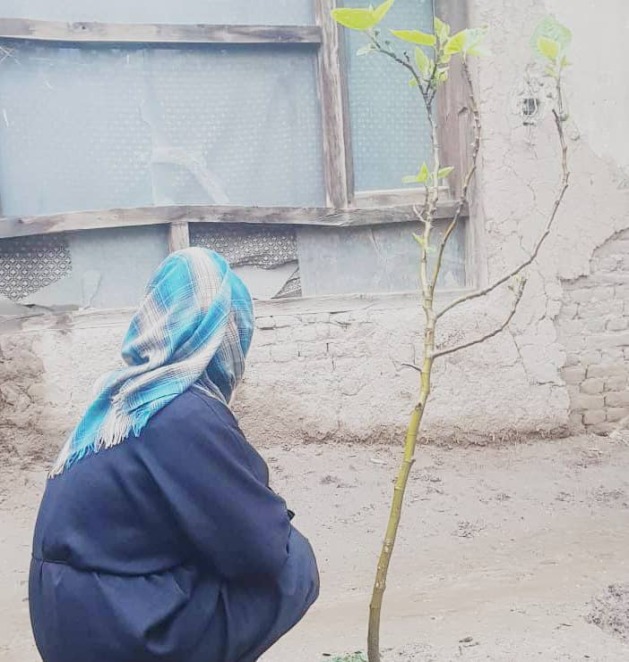
Jul 09 (IPS) – The author is a female journalist from Afghanistan who was trained with Finnish support before the Taliban took over. Her identity has been withheld for security reasons. The Sarai e Shamali camp in Kabul is a temporary refugee camp. The camp receives an average of 100 Afghans a day, forcibly returned from Pakistan and Iran, where most had sought asylum when the Taliban took over Afghanistan three years ago.
Deportation has left these people in a desperate situation, with severe financial problems, homelessness and a lack of means to support themselves.
Mastora, 32, spent her entire life in Pakistan with her family, where her husband sold leather and they lived comfortably. Now, forced back to Afghanistan, they have left everything behind in Pakistan and have nothing. “We have no home, no means of subsistence, not even money for transportation, and the Taliban are not giving us any support,” Mastora says.
Seven women were interviewed for this report; three of them were forcibly returned from Iran and four from Pakistan. Mastora, a mother of five, was one of the women interviewed.
She was born in Pakistan, where her parents moved 40 years ago from poverty-stricken Afghanistan in search of a better life.
Mastora and her family are among the hundreds of thousands of Afghans forced out of Pakistan when the country suddenly announced a forced deportation of undocumented Afghan refugees last year, forcing families who had lived in Pakistan for decades from their homes.
Iran also decided to send back Afghan refugees living in the country.
Pakistan expelled more than 500,000 Afghans in the first phase of deportation in November last year. The country’s authorities have announced a second phase of expulsion to be carried out in July this year, which will affect 800,000 Afghans they consider to be illegal migrants.
All the women interviewed had no place to live; only four had managed to rent a house after living in misery for several days. The Afghan government had not provided them with any support. Of the seven women interviewed, only one had received 1,800 afghani (equivalent to 23 euros) from the UN when she left Pakistan.
The arrival of the deportees had a direct impact on Kabul, where rents and property prices rose significantly.
The reason many Afghans fled to neighboring Pakistan and Iran was largely the economic collapse following the Taliban takeover, the persecution many faced, and the subsequent severe repression of women under the hardline Islamist Taliban regime.
However, Afghans are being forcibly returned to a country where conditions have deteriorated.
Madina Azizi, a civil activist and law student, fled to Afghanistan a year ago. “I was in Pakistan for more than nine months,” she said, “and now I am forced to return to Afghanistan and I fear for my safety. In Pakistan, I did not live overnight in fear that the Taliban would come after me,” Azizi said.
In addition to the financial problems, the women are also very concerned about the future of their daughters in Afghanistan, where the Taliban is cracking down on girls’ education.
Shakiba and Taj Begum were deported from Pakistan. They are illiterate but their husbands are well educated and according to them that is the reason they know the value of education.
“I was in Pakistan for seven years; my daughter is 16 years old and she was in 9th grade. In Pakistan, my husband and I worked for the future of our children, but now here we have nothing, we have no job, we have no shelter and I am worried about the future of my two daughters, says Shakiba. “
Begum also voices similar concerns. “I was in Pakistan for four years. I have a daughter who was in class 7 in Pakistan; my husband was a tailor. Our life was much better than it is now in Afghanistan. It’s been two weeks since we came back and we still haven’t found a house. We haven’t received any help. We are wondering what to do.”
Malai, Feroza and Halima, deportees from Iran, say they left Afghanistan after the Taliban took over because they were not allowed to work. In Iran, however, they all had paid work. Malai worked as a cleaner with her husband, Feroza worked in a restaurant and Halima worked in a hair salon.
“Now we can hardly live our lives. If we can get food for breakfast, we have trouble getting it for the evening. If we can get food for one day, we have to divide it for the next day. We live in great difficulty. We have often survived for days on tea and bread,” the women say.
The women also said that their daughters and sons have no jobs and no support whatsoever. The girls are not allowed to pursue further studies.
Due to the economic hardship and security risks faced by women forced to return to Afghanistan, immigration experts and women’s rights activists are calling on Pakistani and Iranian authorities to stop the forced deportation of Afghans.
© Inter Press Service (2024) — All rights reservedOriginal source: Inter Press Service







